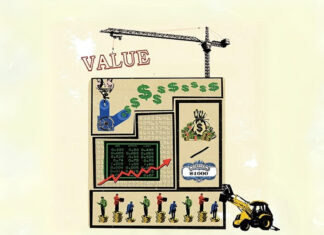As your loved ones get older, they may need more care and attention. Taking them to a nursing home seems reasonable, especially if you do not have the time or resources to look after them. After all, nursing homes are established to provide care and support to vulnerable members of society.
Unfortunately, these centers may sometimes neglect their duties, causing their residents pain and suffering. Remember, older patients cannot stand up for themselves and may persevere abuse or neglect without complaining. They may not even realize when wrongful acts are done to them.
Nursing home abuse is quite common; in fact, one in every six older adults has experienced some form of nursing home abuse. While physical signs of abuse are easy to spot, others, like emotional ones, are not easy to notice. Here are some red flags to look out for in your loved one.
Types of Nursing Home Abuse
Below are some of the typical forms of nursing home abuse:
Physical Abuse
This is the most common form of abuse in nursing homes. Signs include:
- Presence of bruises and scars on an elderly’s body
- Unexplained fractures, dislocations, or sprains
- Restraint marks on wrists
- Over-involvement of nursing home staff when you are visiting. They may try to prevent you from spending alone time with your loved one.
Emotional Abuse
Unlike physical abuse, emotional abuse is not easy to identify. Here are some behaviors that might point to this type of abuse.
- Controlling or threatening behavior from the nursing home staff
- Changes in an elderly’s behavior. They may exhibit signs of dementia, like rocking habits.
Sexual Abuse
Here are some of the common signs of elderly sexual abuse in nursing homes
- Stained or torn underwear
- Vaginal or anal bleeding
- Genital bruises and scars
- Unexplained genital infections
Staff Neglect
Caregiver neglect can be seen in the following ways:
- Failure to address potential hazards, such as faulty electrical wiring
- Bed sores
- Sudden weight loss
- Dehydration
- Untidiness
Financial Abuse
Look out for the following signs of financial abuse in your loved one:
- Unusual services or subscriptions that the elder might not have made
- Financial transactions when the elder is incapacitated
- Missing cash or other valuables
- Sudden changes in their will, life insurance policies, and power of attorney
- Adding names to the elder’s credit card signatures
Healthcare Fraud
Healthcare personnel at the nursing home might take advantage of older adults in the following ways:
- Offering poor health care services even when fully paid for
- Patient medication under dosage or over-dosage
- Duplicating medical, service, and device bills
- Insufficient or unqualified staff
Key Takeaways
It is important to note that, at times, nursing home caregivers do not intentionally harm their residents. In most cases, they may be understaffed and struggle to meet everyone’s needs. Also, some may lack proper training and be ignorant of the requirements for elderly care.
Remember, caring for older adults may be challenging, especially if they experience physical and mental limitations. The caregiver might fail to draw satisfaction from looking after them, resulting in more stress as they handle your loved one.
As mentioned, elderly individuals rarely point out nursing home abuse or neglect. You are the one to look out for signs of physical, emotional, sexual, and financial abuse. You can only achieve this by frequently visiting your loved one in the nursing home.
“If you suspect someone you love is being abused, ensure you hire a nursing home abuse attorney. They will help you recover any nursing home abuse and neglect damages. Doing this will also help protect other residents from facing these challenges,” says attorney Rich Godshall of Ostroff Godshall Injury and Accident Lawyers.



































